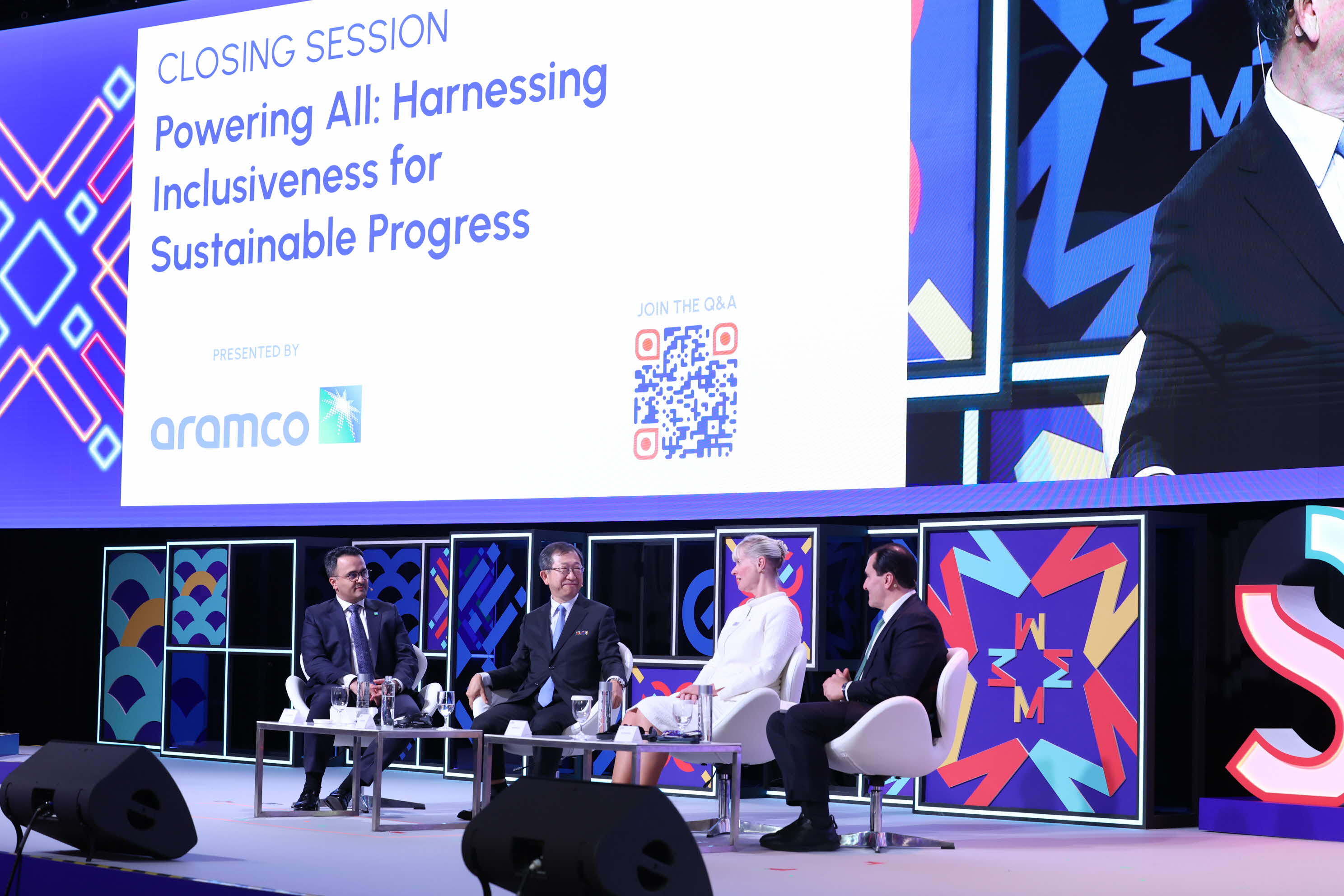With the focus on "Powering All: Harnessing Inclusiveness for Sustainable Progress", the SIEW Summit Closing Session emphasised the critical role of inclusivity in driving sustainable progress in the global energy sector. Moderated by Tatsuya Terazawa, Chairman and Chief Executive Officer, The Institute of Energy Economics Japan, the panel explored key ways to address the broad challenge of ensuring inclusivity in the energy transition.

Streamlining inclusivity: key focus areas
Inclusiveness in the energy sector is multifaceted, and each speaker in the closing session offered their unique perspective on what they saw as the most critical aspects to address.
Fahad K. Al Dhubaib, Senior Vice President for Strategy & Market Analysis, Aramco, emphasised the importance of providing access to affordable energy. He cited that countries with universal energy access experience growth rates of 2.5 times higher than those with limited access. Expanding energy access has the potential to uplift the lives of 770 million people, driving not only economic growth but also improved quality of life.
Joseph McMonigle Secretary General, International Energy Forum, echoed this sentiment, underscoring the urgency of eradicating energy poverty. He emphasized that the energy transition must be equitable, providing affordable energy and new economic opportunities for all.
Dr Angela Wilkinson, Secretary General, World Energy Council, brought attention to the need for climate adaptation, emphasizing the importance of amplifying the voices of underrepresented groups—particularly women, the Global South, and the next generation. She argued that only by addressing the needs of these groups can we create a truly inclusive energy transition.
Improving energy access
Mr Dhubaib called for greater inclusivity in energy access through broader support for energy technology, adaptive market frameworks, and realistic approaches to the energy transition. He pointed out that energy technologies, including carbon capture, utilisation and storage (CCUS), should receive equal attention alongside renewables. Adaptive market frameworks focused on emissions reduction will naturally incentivise the use of the right technologies, creating a more balanced energy mix and reducing demand where necessary. A pragmatic outlook is essential for charting the right path towards sustainability.
Balancing affordability
Mr McMonigle highlighted that continued investments in hydrocarbons remain critical for maintaining affordability and stability during the energy transition. The International Energy Agency (IEA)'s technology report showcased how promising new technology is not yet capable of supporting the world's energy needs. Reducing investments in hydrocarbons prematurely could result in high and volatile energy prices, which could weaken public support for the energy transition. Ensuring affordability is key to sustaining public backing, which is crucial for a successful transition.
Recognising the role of oil and gas in the energy transition
The role of OPEC and oil & gas companies in the energy transition is becoming increasingly recognised. Once stigmatised, these industries are now seen as essential to balancing sustainability with affordability and accessibility.
The future of the global energy landscape hinges on inclusivity, affordability, and sustainability. Whether it’s ensuring access to affordable energy, balancing investments in hydrocarbons and emerging technologies, or giving a platform to often-overlooked stakeholders, the energy transition must be approached with a comprehensive and pragmatic strategy. Only by integrating these diverse perspectives and interests can we create a more equitable and sustainable energy system that works for all. Mr Dhubaib explained that Aramco is focused on two objectives: meeting growing energy demand, and lowering the carbon footprint of oil & gas. He highlighted Aramco's investments in renewables and carbon capture hubs as part of the company's commitment to supporting the energy transition. Acknowledging the crucial role these stakeholders play will be key to ensuring a smooth and balanced transition in achieving a connected and sustainable energy world.
Stay tuned as the conversation evolves throughout the day. Follow @SIEW_sg on Telegram and Twitter for key insights, as we navigate Day 1 together.